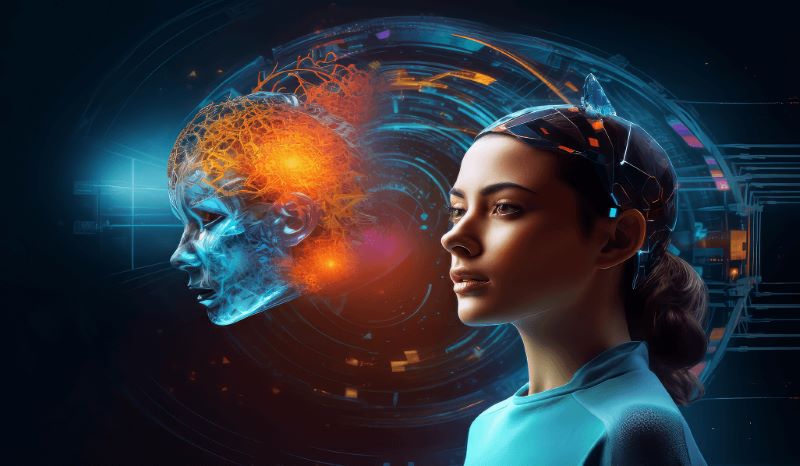Blockchain Technology Alaya AI: Exploring the Future of Decentralized Intelligence
As blockchain technology continues to reshape industries, new integrations and innovations are emerging, combining blockchain with artificial intelligence (AI) to create powerful decentralized solutions. One of the most prominent developments in this space is blockchain technology Alaya AI, a platform that merges blockchain's security and transparency with AI's computational power. In this article, we’ll explore how Alaya AI is leveraging blockchain technology to build smarter, more secure decentralized applications (dApps).

What Is Blockchain Technology Alaya AI?
Alaya is a next-generation blockchain infrastructure designed to support the development of decentralized applications, especially those utilizing AI. Built on the principles of transparency, security, and decentralization, Alaya is part of the PlatON ecosystem, which focuses on privacy-preserving computing and enabling the creation of AI-driven decentralized networks.By integrating AI with blockchain technology, Alaya aims to overcome the challenges of data privacy, security, and scalability that traditional AI applications face. The platform provides a secure and decentralized environment where AI models can be trained, deployed, and shared without compromising data integrity.
How Alaya AI Leverages Blockchain Technology
The integration of blockchain technology into the Alaya platform brings several key benefits:
Decentralized Data Ownership
One of the biggest challenges in AI is the centralized control of data by large corporations. With blockchain technology Alaya AI, data ownership is decentralized, allowing individuals and organizations to maintain control over their own data. This decentralization ensures that data is shared and used in a transparent and secure manner, which is crucial in industries like healthcare, finance, and supply chain management, where sensitive information must be protected.
Enhanced Data Privacy
Blockchain's ability to provide secure, immutable records is a perfect match for AI applications that require large volumes of sensitive data. Alaya uses privacy-preserving technologies, such as zero-knowledge proofs and secure multi-party computation, to ensure that AI can process data without exposing private information.This means that AI models can be trained on encrypted data, offering a layer of privacy that traditional AI systems cannot provide. For example, in the healthcare industry, patient data can be used to train AI models without compromising the privacy of the individual patients.
Trustworthy AI
Blockchain technology enables a higher level of trust in AI systems. One of the concerns with AI is the "black box" problem, where users have little understanding of how an AI model makes decisions. Alaya solves this by recording every step of the AI model's development and decision-making process on the blockchain. This creates a transparent record that can be audited, ensuring that AI algorithms are making decisions based on valid and unbiased data.
Decentralized Computing Power
Alaya leverages the decentralized nature of blockchain to distribute the computational power required for AI tasks. Instead of relying on centralized servers or cloud providers, Alaya enables a network of nodes to share their processing power. This decentralized approach makes AI computations more scalable and cost-effective, while also preventing single points of failure.
Applications of Blockchain Technology Alaya AI
The integration of blockchain technology Alaya AI has the potential to revolutionize various sectors. Here are some areas where this innovative combination is making an impact:
Healthcare
In healthcare, AI models are increasingly being used for diagnostics, drug discovery, and personalized medicine. Alaya’s blockchain-based infrastructure ensures that healthcare data remains private and secure while enabling AI to learn from vast amounts of medical data. This helps improve the accuracy of AI models, leading to better patient outcomes without compromising privacy.
Finance
In the financial industry, blockchain and AI together can enhance fraud detection, automate compliance, and improve customer service through intelligent chatbots and predictive analytics. Alaya AI's platform allows financial institutions to deploy AI solutions that are transparent, secure, and scalable, enabling smarter decision-making processes.
Supply Chain Management
Supply chains can benefit greatly from the combination of blockchain and AI. Blockchain provides traceability and transparency, while AI can analyze patterns and predict potential disruptions. Alaya’s decentralized AI models can optimize inventory management, logistics, and demand forecasting, creating more efficient and reliable supply chain networks.
Smart Cities
With the rise of smart cities, the need for decentralized, intelligent systems is growing. Alaya AI can play a critical role in optimizing energy usage, traffic management, and public safety by processing data from various sensors and devices in real time. The use of blockchain ensures that the data powering these AI systems is trustworthy and tamper-proof.
The Future of Blockchain Technology Alaya AI
As blockchain technology continues to evolve, platforms like Alaya AI are at the forefront of driving innovation in the AI space. The combination of decentralized networks and AI holds immense potential, from creating more secure digital environments to fostering greater collaboration between humans and machines.Alaya AI is poised to become a foundational layer for decentralized intelligence, enabling developers, businesses, and governments to build AI-driven solutions with transparency, security, and scalability in mind.In summary, blockchain technology Alaya AI represents a new era of decentralized intelligence, where blockchain’s security and transparency are combined with AI’s problem-solving capabilities. By decentralizing data ownership, enhancing privacy, and providing scalable computing power, Alaya AI is leading the way in creating smarter, more secure decentralized applications. As AI and blockchain continue to converge, we can expect to see even more groundbreaking innovations in industries ranging from healthcare to finance and beyond.Read more: https://blockchainsolve.com/blockchain-technology-alaya-ai/
